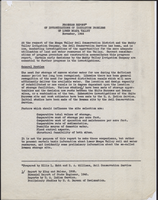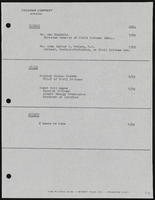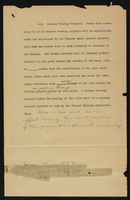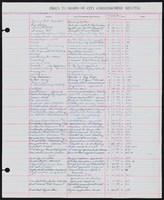Search the Special Collections and Archives Portal
Search Results
Landmark Hotel and Casino: Las Vegas, Nevada, 1961 October 26; 1982 July 23
Level of Description
Series
Archival Collection
Martin Stern Architectural Records
To request this item in person:
Collection Number: MS-00382
Collection Name: Martin Stern Architectural Records
Box/Folder: N/A
Collection Name: Martin Stern Architectural Records
Box/Folder: N/A
Archival Component
Sahara Boardwalk, Atlantic City, New Jersey, 1980; 1980 July 14
Level of Description
Series
Archival Collection
Martin Stern Architectural Records
To request this item in person:
Collection Number: MS-00382
Collection Name: Martin Stern Architectural Records
Box/Folder: N/A
Collection Name: Martin Stern Architectural Records
Box/Folder: N/A
Archival Component

Progress report of investigations of irrigation problems of Lower Moapa Valley, November 1944
Date
1944-11
Archival Collection
Description
Report of the Lower Moapa Valley soil and water resources.
Text
Boulder City Library Oral History Project
The Boulder City Library Oral History details the history of Boulder City, Nevada. It features the history through the building of the Boulder Dam and the building of the town, as well as it's influential citizens and it's effect on early Las Vegas.
Sources:
Lee Tilman oral history interviews, 1996 February 06, 11, 13, 17, and 22; May 28; July 09. OH-01826.
Audio Recording. Oral History Research Center, Special
Corporate Body

Transcript of interview with Robert Bugbee by Karol Sorrells, July 08, 1975
Date
1975-07-08
Archival Collection
Description
Activities in Southern Nevada since 1952 including work at Nevada Development Authority. Collector: Karol Sorrells
Text
Pagination
Refine my results
Content Type
Creator or Contributor
Subject
Archival Collection
Digital Project
Resource Type
Year
Material Type
Place
Language
Records Classification





